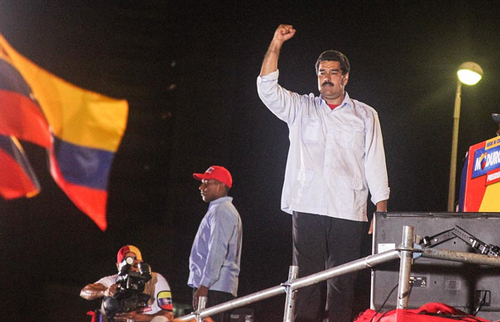Poster of Bolivia de pie, a month dedicated to the Latin American country in the University of Salamanca.
Tamara Fariñas. Madrid
The Bolivian Foreign Minister, David Choquehuanca Céspedes, inaugurates ‘Bolivia en pie’ today, a month full of cultural events about Bolivia after the Gas War, one of the most powerful social conflicts experienced in the Andean country, connected to the exportation of natural gas to the US and Mexico through Chile.
The minister met the Bolivian community resident in Madrid yesterday during the first stop of an unofficial visit to inaugurate Bolivia en pie, a month filled with cultural events organized by the Ibero-American Institute of the University of Salamanca, with the collaboration of the Embassy and Salamanca’s School of the Good Life.
Choquehuanca, who is already in Salamanca, is inaugurating the photographic exhibition A 12 años de la Guerra del Gas (12 years after the Gas War) this morning. The exhibition gathers the work of citizens from El Alto, who are, unquestionably, the main figures in the dispute that, in 2003, started when the Bolivian population refused to export gas before having a country with a supplying policy of the internal market and to do it, also, at a low cost.
[hr style=”single”]
Choquehuanca will give a conference on the process of change and the good life in Bolivia
[hr style=”single”]
During his visit, which takes place on the University’s initiative, the Bolivian Foreign Minister will visit the institution’s bibliographical collection and will attend a reception organized by the vice-chancellor rector, to, subsequently, give a conference on the process of change and good life at the Painting Hall of the Archbishop Fonseca School.
Although the inauguration of the events is taking place today, 14 January, the photographic exhibition will be open until 6 January at the Hall of the Auditorium of the Fonseca Guest Quarters of the University. From 1 to 3 February, several conferences related to the process of social transformation following Bolivia’s Gas War will take place; on 4 and 5 February, a series of short films will be screened; and on 5 February, a music and folklore day will be celebrated at the centre.







